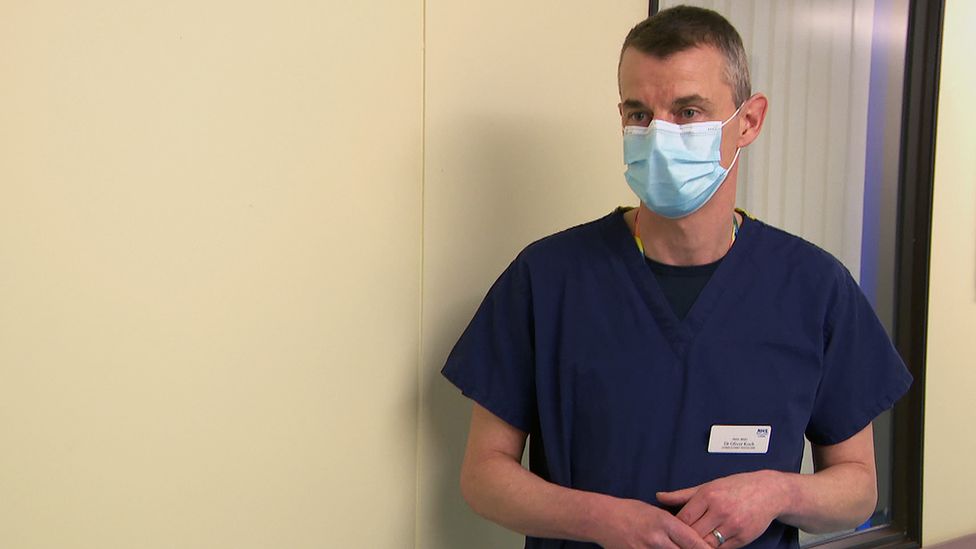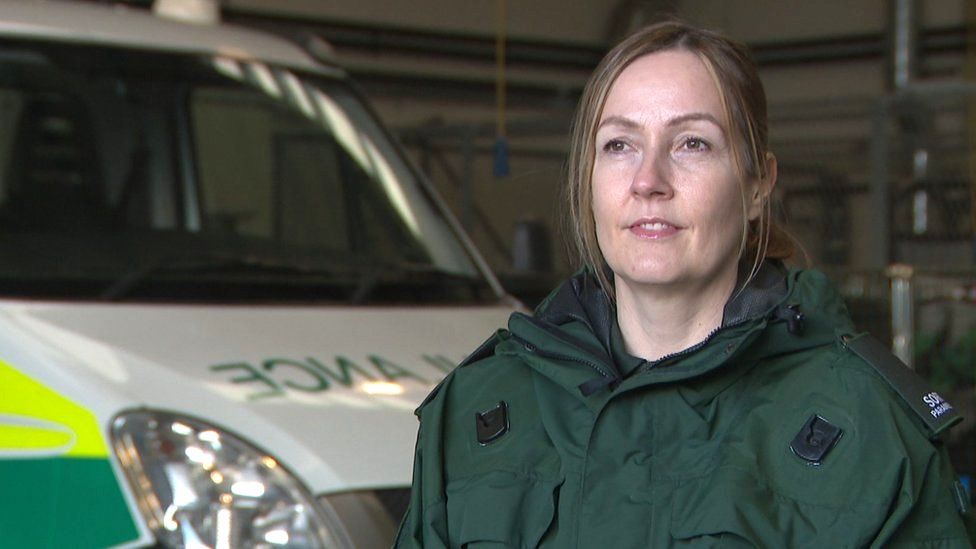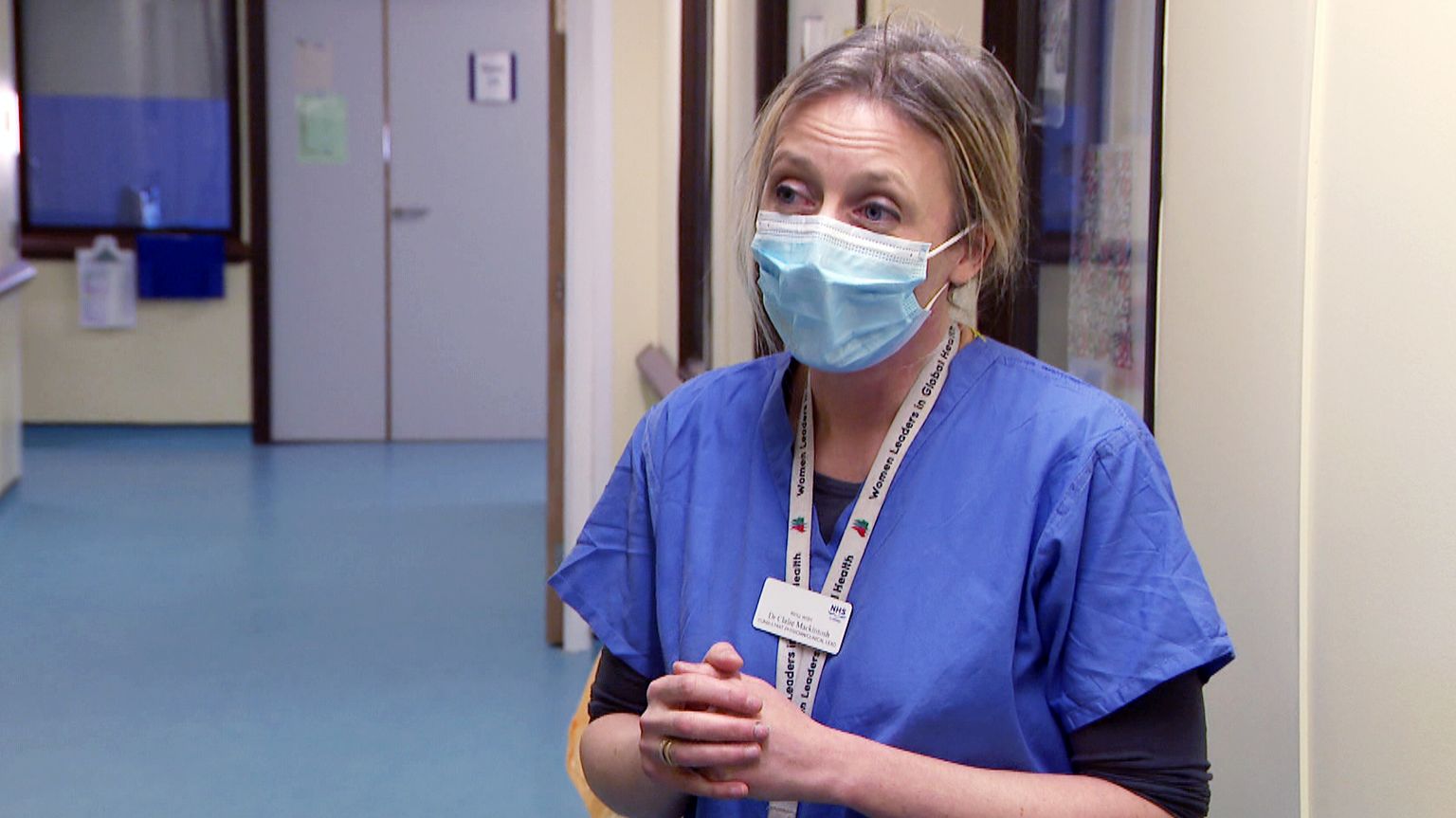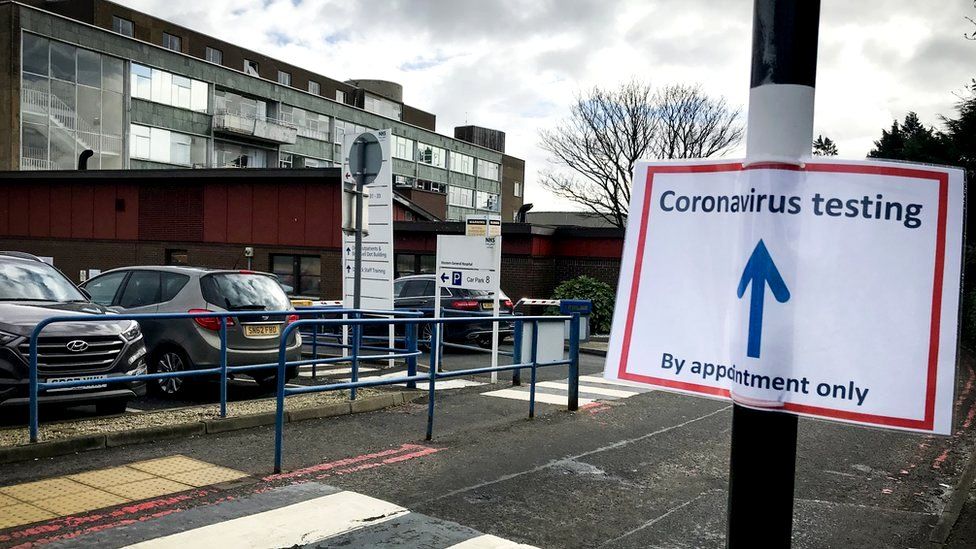Covid in Scotland: 'None of us grasped how much society would change'

He had just travelled back from Italy after watching Scotland play in the Six Nations rugby.
The 51-year-old from Tayside had what we now know to be classic Covid symptoms of a fever and cough and contacted NHS 24 for advice.
Soon he was being rushed to the infectious diseases unit at Edinburgh's Western General Hospital.
For the medics who helped him, this was "patient zero" of the ongoing battle against Covid.
"Because it was unknown, and we didn't know the transmissibility, we were just a bit unsure of how we would deal with it - it was quite daunting," paramedic Isla Winnik said.
Isla is part of the Scottish Ambulance Service's special team that is trained to deal with major incidents and is used to transport patients who could have highly contagious diseases.
Isla and her colleague Mark Treherne were just about to start a night shift when they received a call from their team leader to go and pick up the 51-year-old patient and take him to Edinburgh.
Mark said: "Probably one of the most unusual things about the job was the level of Personal Protective Equipment (PPE).
"The patient was stable and we had to provide a lot of reassurance because we just arrived at his house in this high level PPE and it's something you really had only seen in movies prior to that."

At the Western General's infectious diseases unit, Dr Rebecca Sutherland was the consultant on duty.
Dressed in a white full body suit, wellies, double gloves, and with a big visor that connects to an air supply, Dr Sutherland and a nurse waited for the ambulance to arrive.
As is the norm for patients with a highly contagious infection, the 51-year-old was to be escorted to a specialist "negative pressure" room upon arrival, with the corridors leading to this area of the hospital cordoned off.
'We had rehearsed this so many times'
Dr Sutherland said: "We had rehearsed this so many times and we had a patient who we could immediately see was really clinically stable and pretty well.
"So I think as soon as we saw that then probably all of our heart rates came down a little bit.
"And then we simply went into the role that we do for all our patients, which is check their observations, take a strict examination and then there is an involved process of getting the bloods and swabs safely to the labs."

The negative pressure rooms are designed to stop potentially infectious particles getting out.
This means there is no natural light and anyone in the room has to use a buzzer to communicate with staff outside.
It is a sparse setting, there is a toilet, a TV and an internal window with a view into a hospital corridor.
Despite being reasonably well, the patient spent the next eight days in this room.
We also know that the very first cases were probably linked to other travel events than just the rugby match in Italy.
In addition, the virus was likely to be spreading in the community faster than it could be contained.
But one year ago, anyone who had a positive test was to be brought to hospital even if they were asymptomatic.
 image copyrightPA Media
image copyrightPA MediaClinical lead for the infectious diseases unit, Dr Claire Mackintosh was also called in to work that evening.
She said: "We had very strong plans in place for this eventuality.
"Clearly we were quite anxious, this was a very new disease, although we had been expecting it, we'd never actually met a patient with it.
"We didn't know what the manifestations of the disease were going to look like other than what we'd heard from Italy and China at that point.
"So there was a high level of adrenaline, a lot of anticipation, anxiety but we were quite confident in our processes. "
'Everybody in society is now affected'
Dr Oliver Koch was also called to the hospital that evening.
He said: "I think perhaps none of us really grasped at the time how much society would change in the weeks ahead.
"Everybody in society is now affected, whether they have or don't have the disease. And that's the sort of dimension that I think was hard to comprehend at the time."




No comments